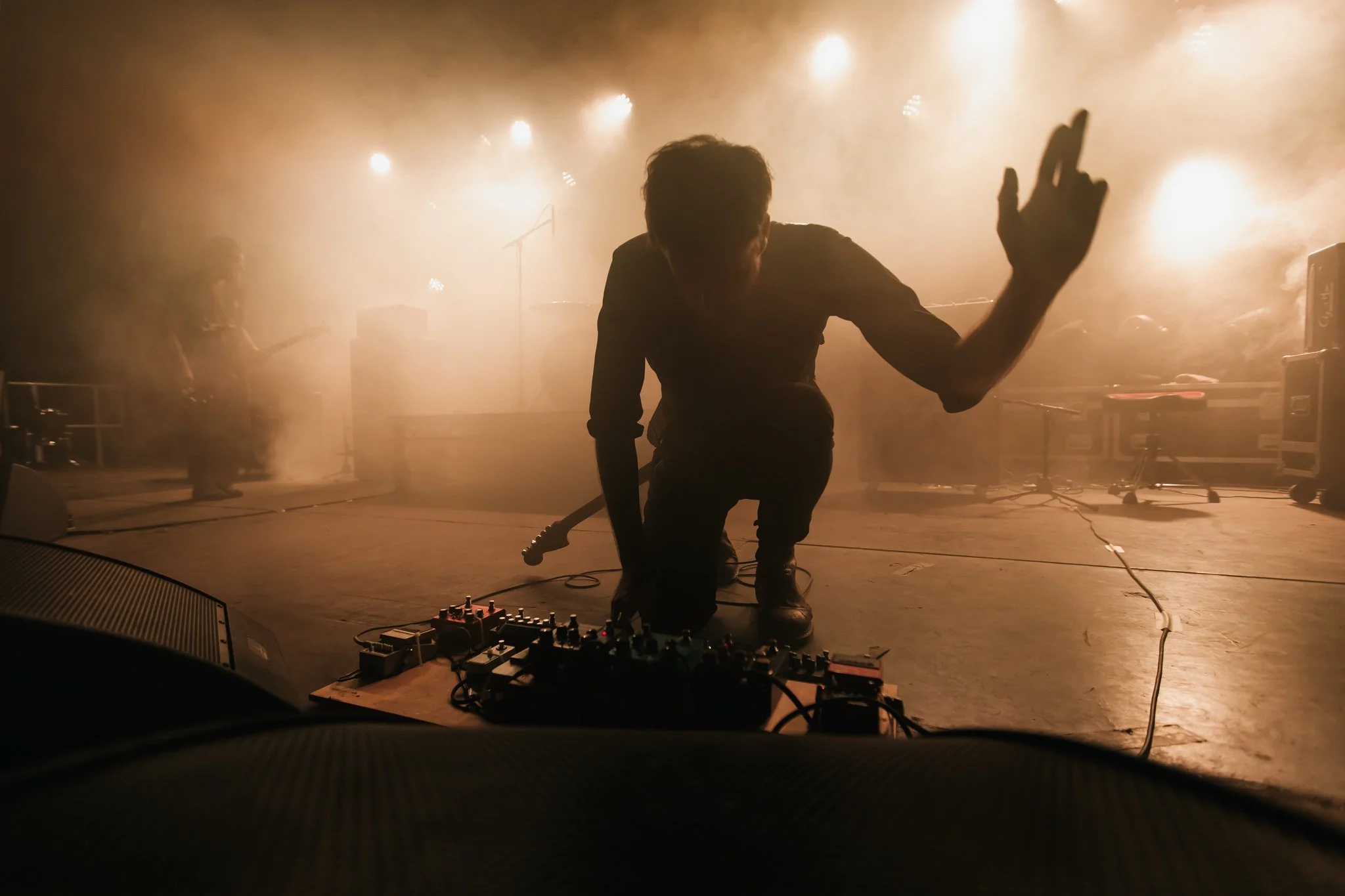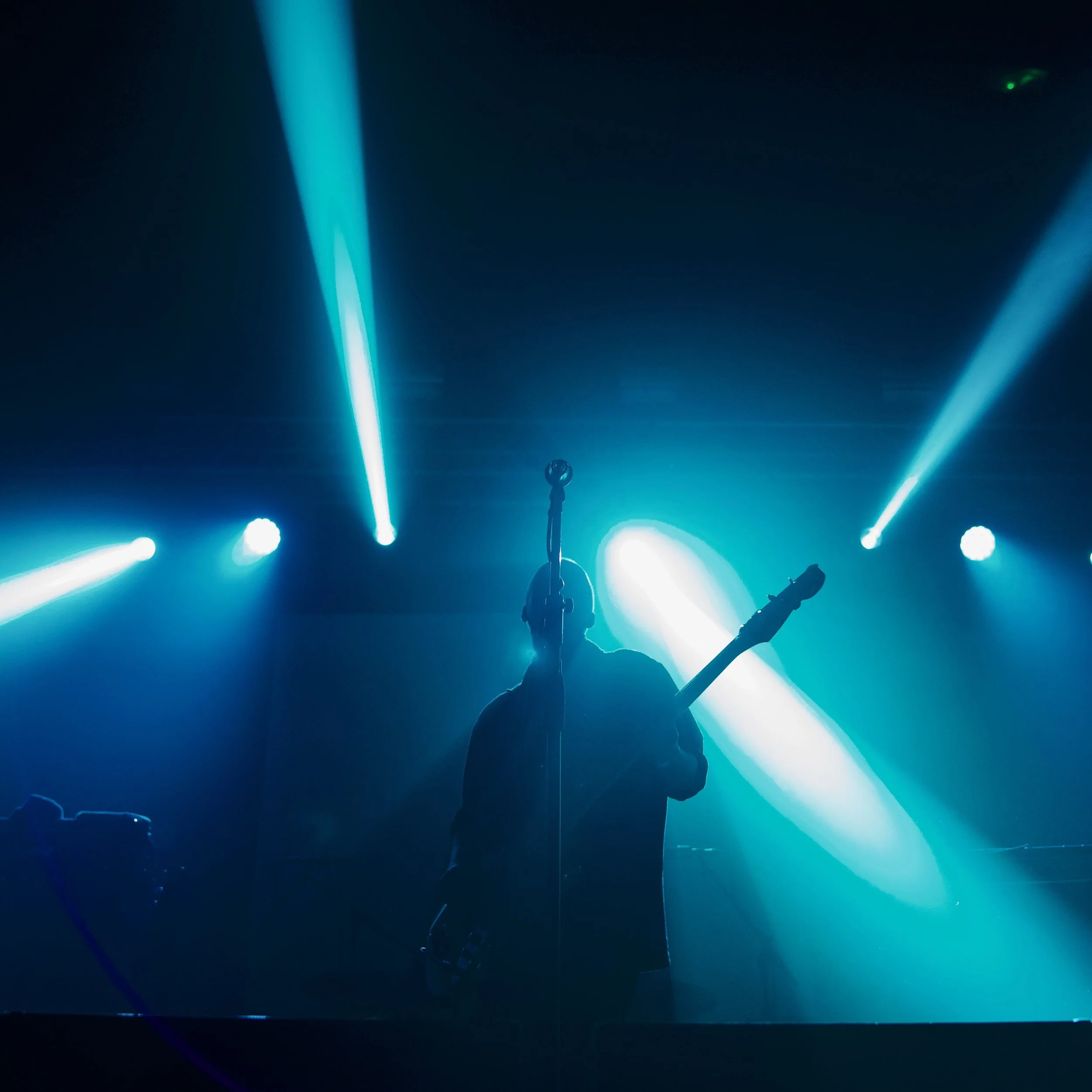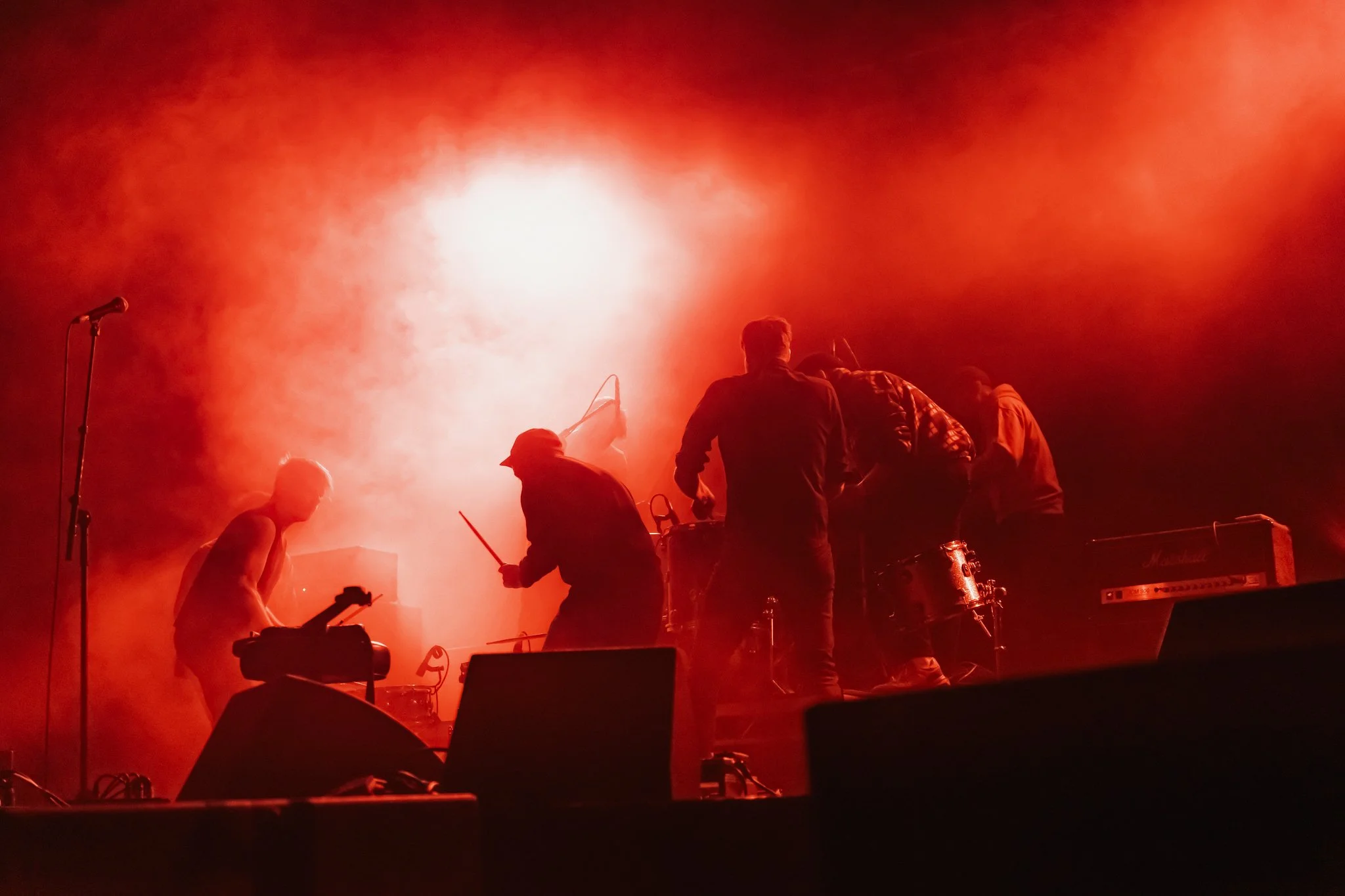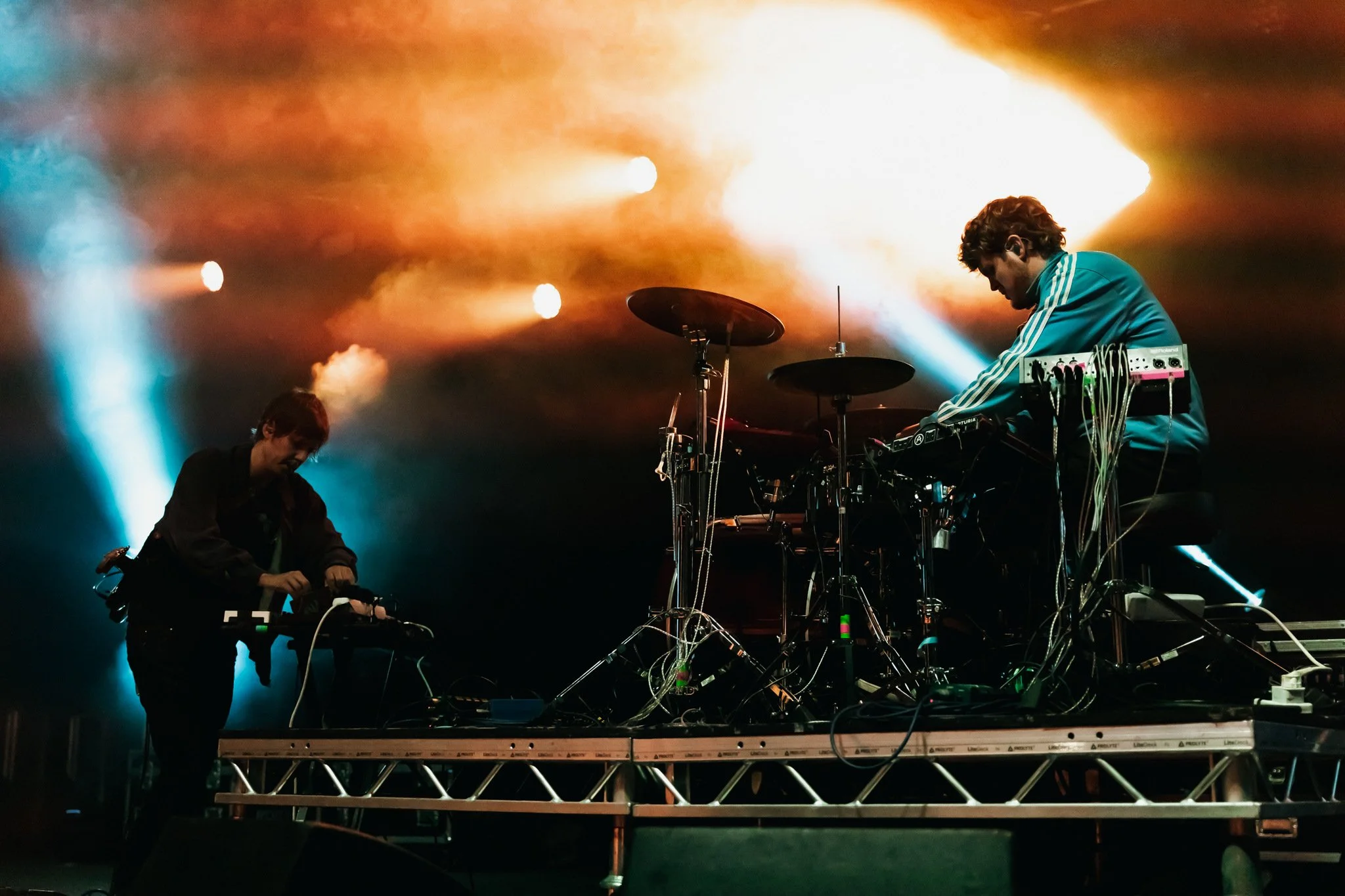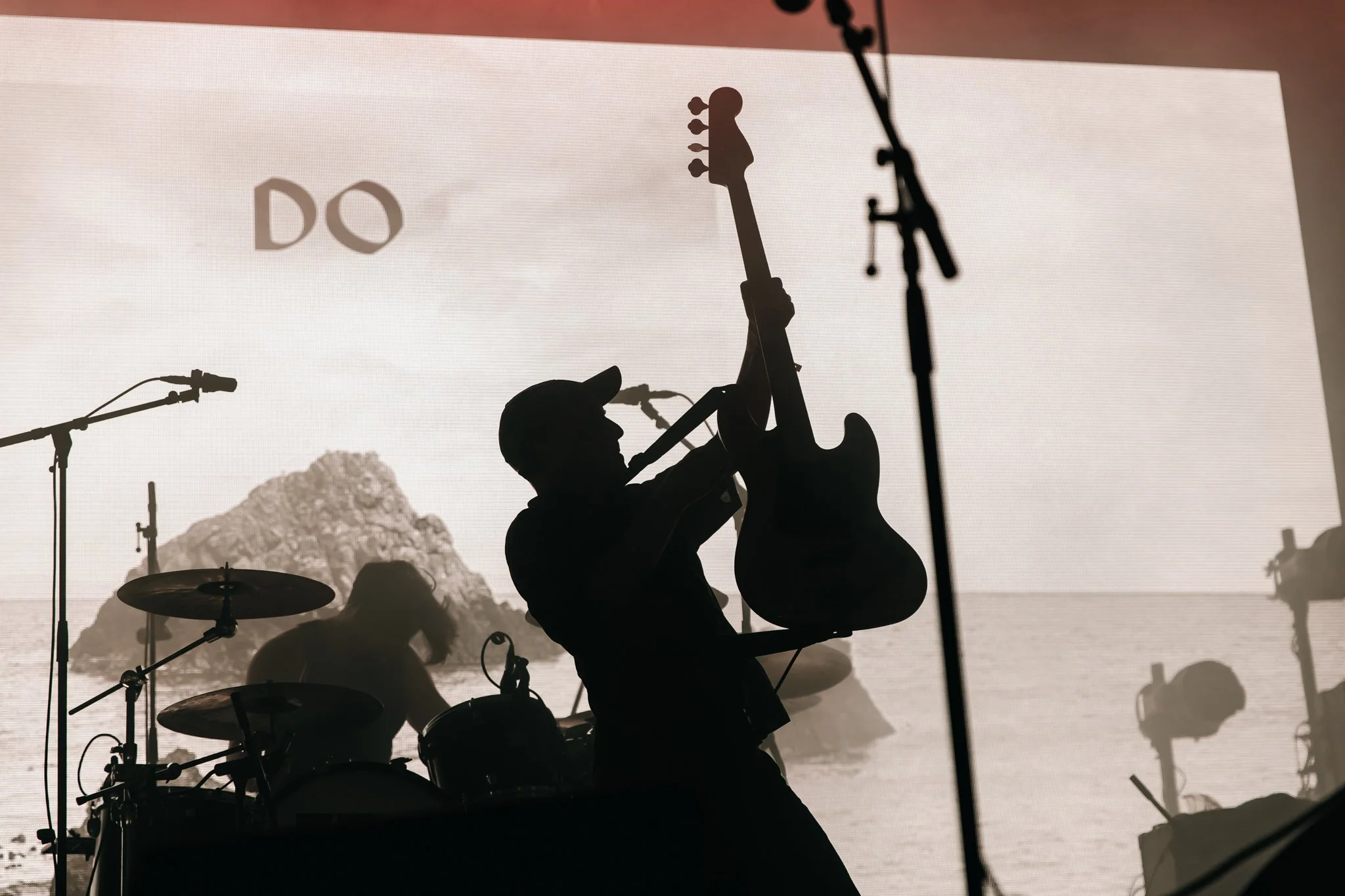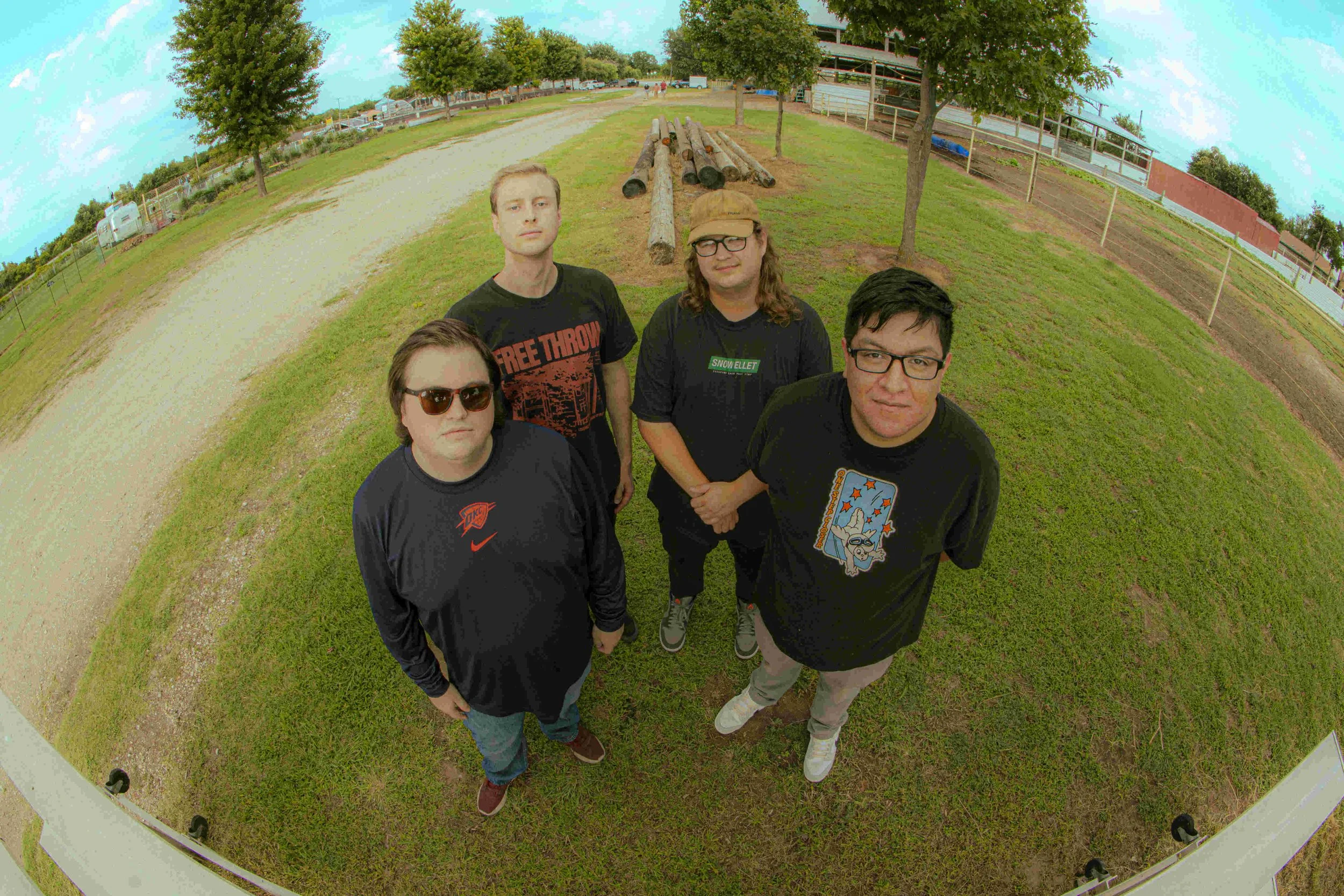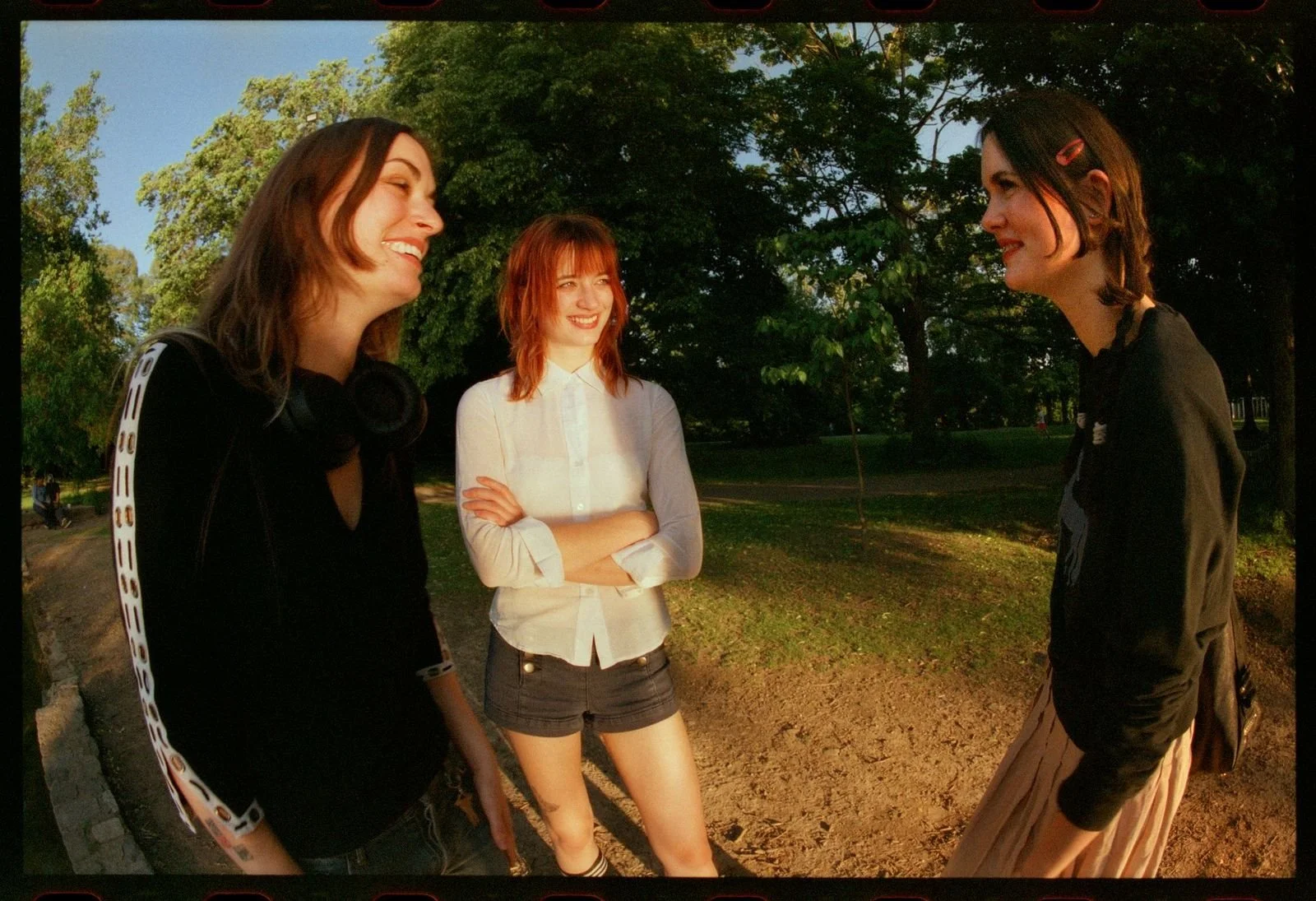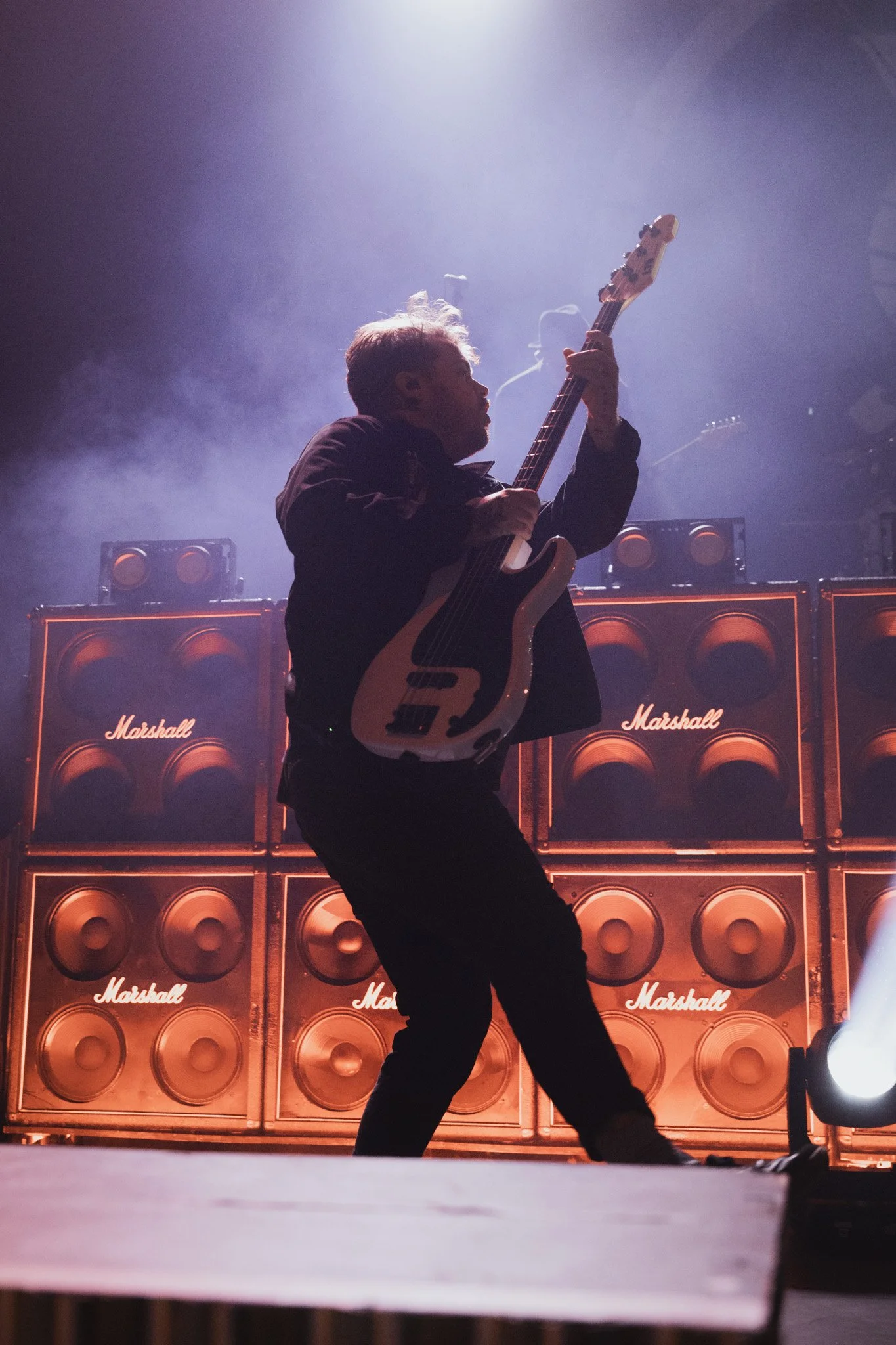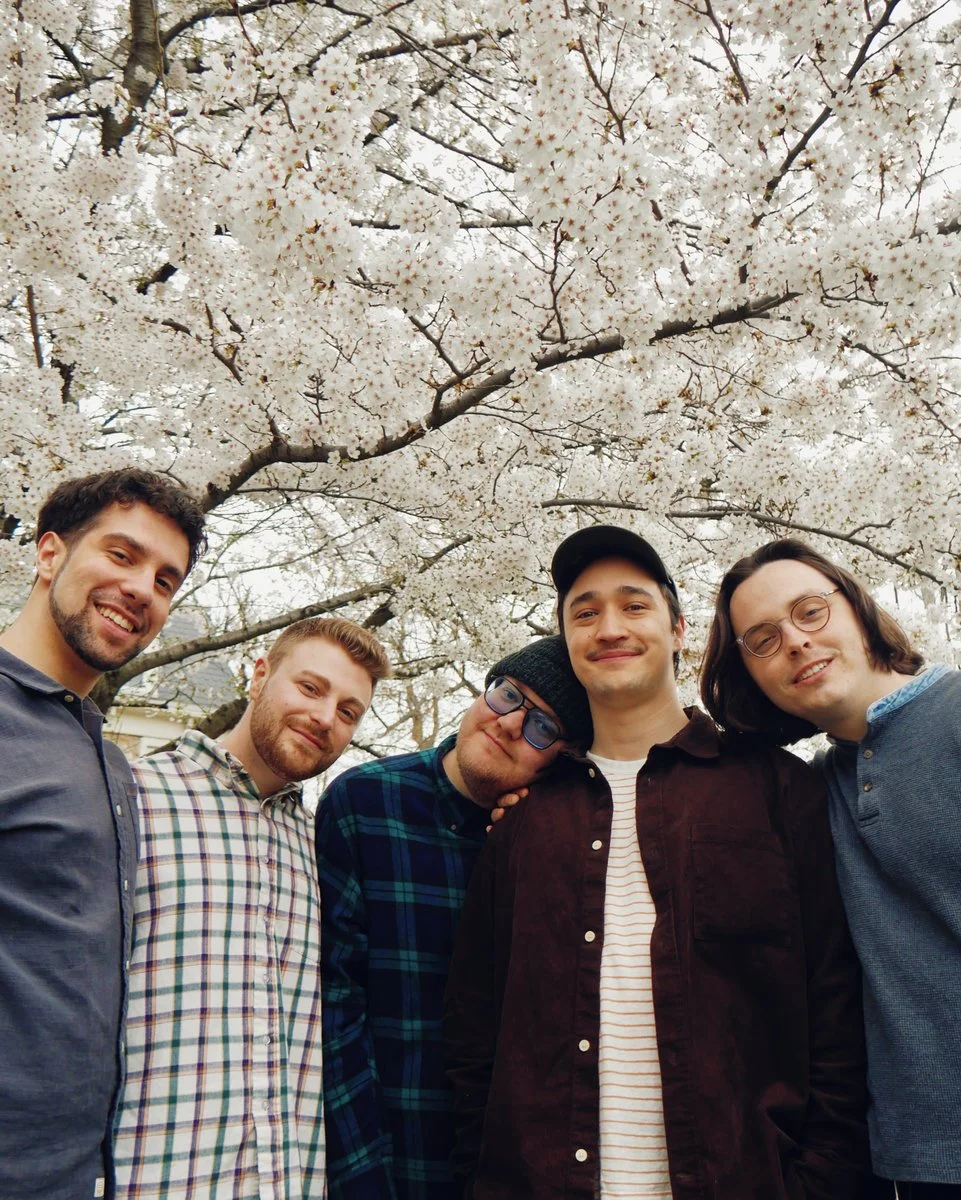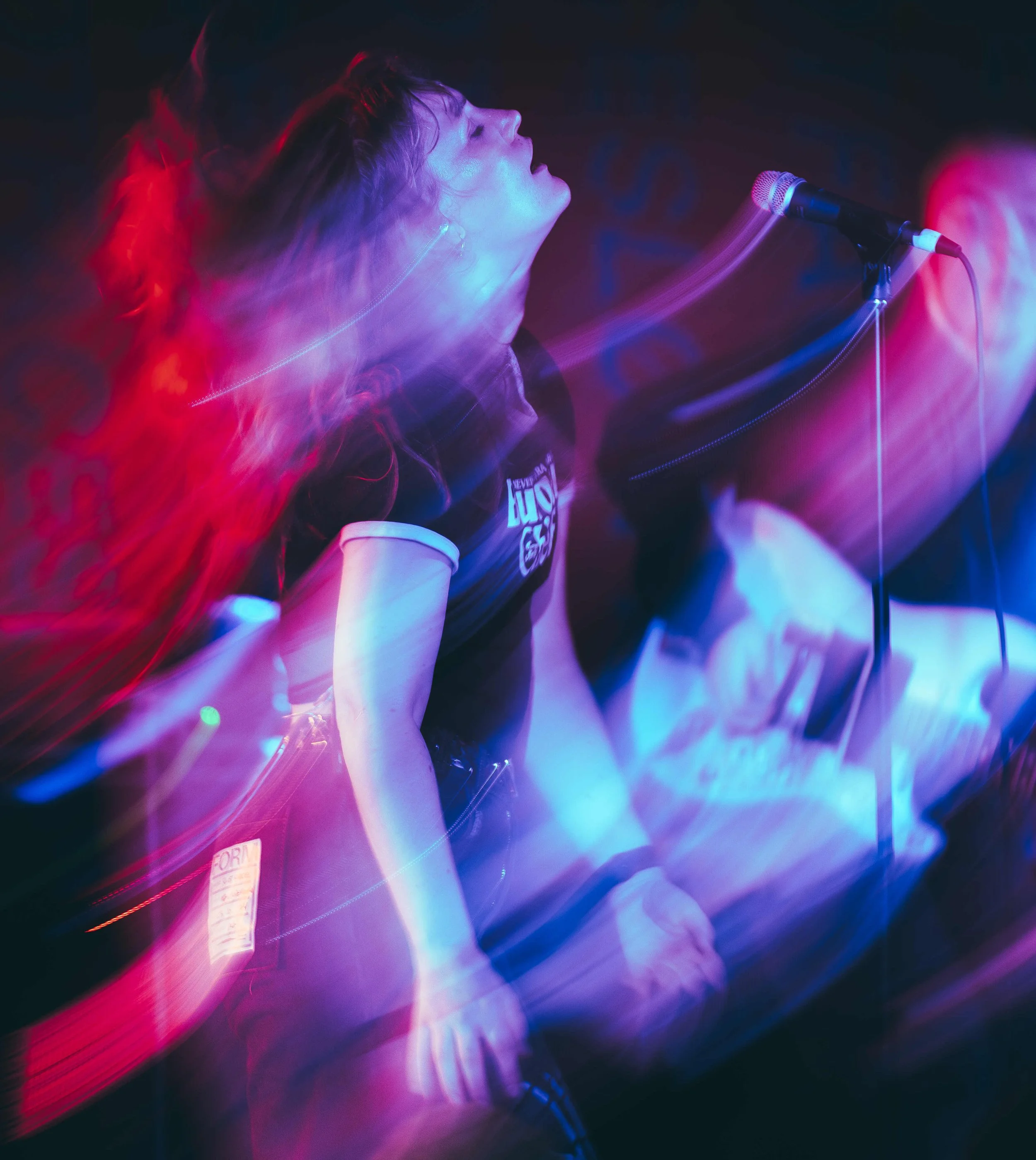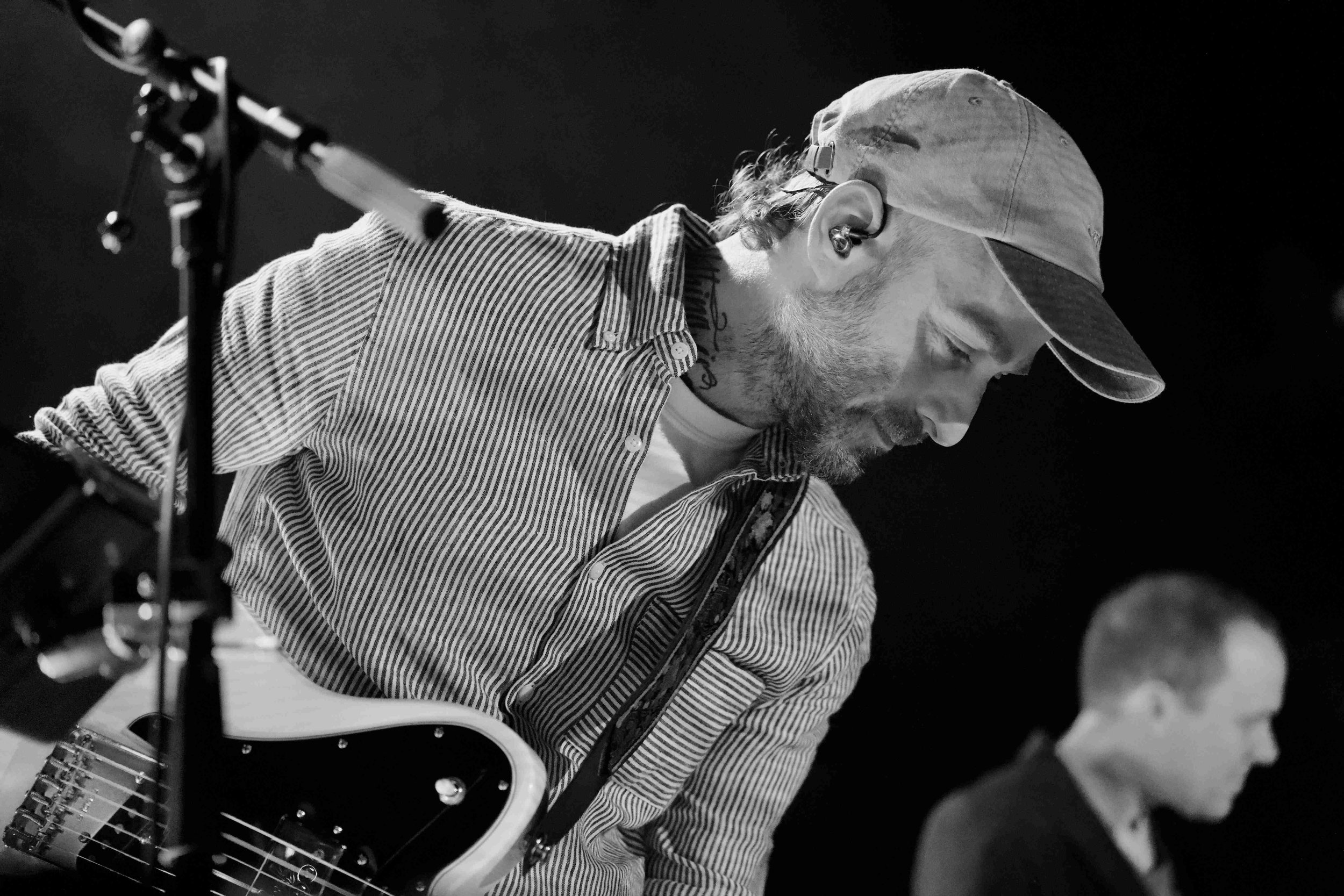Interview: Caspian @ ArcTanGent
Caspian by Jez Pennington
Meeting your favorite band, a group whose music has been a grounding force for you, is an experience most fans can only dream of. For me, that dream became a reality when I sat down with Phil Jamieson and Jonny Ashburn of Caspian at ArcTanGent. Their emotionally charged, instrumental post-rock is a cathartic release like no other, and they continue to influence not only listeners like me but countless bands within the post-rock genre.
To finally see them live, and to also share time and conversation together, was a surreal and unforgettable experience. As they celebrate both the band’s 20th anniversary and ArcTanGent's 10th, we spoke about the past, the present, and their reflections on two decades of music, camaraderie, and growth.
This is incredible. Thank you so much for your music and your time today. You're actually my favourite band, and I might get emotional.
Jonny: We also have favourite bands, so we get where you're coming from, and that's very cool. Thanks for being here.
You’re in the midst of a pretty special year. It is the 10th anniversary of ATG, and you’re also celebrating the 20th anniversary of the band, and just recently finished a 20-year anniversary tour with good friends. It’s been a big year of celebrating, how do we feel?
Jonny: Couldn't feel better. We just got off the road with And So I Watch You From Afar for the last three weeks, and in terms of doing something that celebrates 20 years of being a band, it was also their 20th anniversary. To do that together with them felt very appropriate. Coming back here a week later after that tour ended, it’s just a lot of perfect emotions tied up in it. Celebrating the ArcTanGent 10-year anniversary in this way just feels incredibly appropriate. I personally have never had more fun on the road than in the last three weeks doing that 20-year tour. So many incredible nights—the crowds were awesome. And most importantly, the camaraderie we had there. We’ve always had a close bond between our two bands, and that kind of camaraderie is why we can still be out doing this 20 years later. With ASIWYFA, we’re all in each other's weddings; we hang out outside of the band. We’re all friends, and that's what got us here. So, how I feel is loved and emotional, in the perfect way.
Phil: That’s perfectly said. I agree with all of that. It’s been emotional; it’s been nostalgic, for sure. It’s natural to be nostalgic when you're celebrating 20 years, but this has ended up being really galvanizing. It’s made us excited about the future, which is really cool. Sometimes, if you're doing an anniversary tour, it's a lot of memory lane, digging up a lot of memories from the past, which we did and that was great. But this was really overall galvanizing for both bands, which is awesome. That's all you can ask for from a tour. The last thing you want to do is go on tour, get off, and think, "I never want to do that again." We’ve had some tours that have been close to that, but nothing full-on. And this was the exact opposite.
Caspian by Jez Pennington
You say about the camaraderie of it, and I saw last night a little Instagram story of everyone side-stage when Rory Friers was DJing, having a little dance together which was really sweet. It was very cute. Love to see friends supporting friends.
Jonny: The camaraderie is really special. During the tour, every night they joined us on stage for one of the last songs. And then on the last show of the tour, we went up and joined them during their focal part. That moment, at the end of each set when they’re coming up, was what I was looking forward to every day—just being able to have that moment with them every day. Tons of fun.
Phil: We will resurrect that moment this evening,
Jonny: Yeah, in a couple of hours.
I did want to ask but didn’t want to push, might we get a crossover?
Jonny: We’ll get a crossover, yeah.
Phil: We will.
I've never had the opportunity to see you play. I just kept missing you in life and got to a point of resolve that that experience wouldn’t be for me. So I’ve been beside myself excited for today. I’m going to go watch them and then camp out for the front of your set.
Phil: What do you want to hear? I hope you pick something that we’re playing.
What do I want to hear? Probably not, and I’m okay with that. I love the whole discography. “Rioseco”, the second track off Dust and Disquiet is so incredible.
Phil: One of my favourites, yeah.
So good. The first half of On Circles is all stunning, but somewhere in the second half—I love "Ishmael." But the thing that got me years ago was the transition into "The Dove". It’s easily the most romantic piece I think I’ve ever heard.
Phil: I love that one. Over the years, I've heard a lot of people respond to that song. It's interesting because it's more of a transitional ambient thing, but it really ended up connecting with a lot of people, which is wonderful.
It’s beautiful and it’s that whole movement for me. Going from "Brombie," probably the heaviest track on that album, to "Our Breath in Winter," a bit softer, and then "The Dove," super ambient and smoothly transitioning into “ASA”. It’s really a movement and whole cohesive thought.
Caspian by Jez Pennington
Phil: From day one, we've always really liked doing that juxtaposition of dynamics. Some of my favorite records do that. Well, my favorite records always do that. Going from something so heavy and you descend into something just completely different. I think that’s just way more of an interesting listen. And I think it mimics human emotion a lot more too. I don't think we're simple, one-dimensional people; we all have a lot of nuance, we all have a lot of light and shade, and the music should reflect that.
Your responses are all so thoughtful, I’m just getting lost in listening. Where to even go next? In recent years, you’ve been quite vocal about balancing art and life, the band and ‘regular’ living. How has that balance continued to shift, especially as you’ve been quite active lately?
Jonny: Over the last six months, we’ve definitely put in some hours on the road. We did a tour in Asia last December, which was our fourth or fifth time over there. That was really good. But as we get older, we’re playing fewer shows per year, but I’ve found that the fewer shows we play, the more I appreciate every single one. As much as I want to be out there a bit more, we all have families at home, and we need to make sure we prioritize those things. But being able to balance that is, like we were saying before, one of those reasons that we can still be a band 20 years later. Being able to balance that in a healthy way has kept us going.
Cal just transitioned back into being a full-time touring member, which was a wonderful full-circle situation. Phil and Cal were founding members and he took a break from the road when he had his kids. Raised them, and now they're old enough to come to some of the shows and he can be on the road with us. That's a prime example of the balance and letting that balance kind of dictate things.
How does it feel to now be and a stage in life of being able to share your music with kids? For anyone in the band who has kids and is able to bring them to the shows?
Jonny: There’s a specific joy that surrounds kids being at shows. When I look out and see kids sitting on their parents' shoulders, it just makes me want to cry—it’s incredible.
Phil: Absolutely, agreed.
So…I have to ask if you’re working on new material. It’s been four years since the last album.
Caspian by Jez Pennington
Phil: Yeah we’re definitely at the point. There was a period where we were kind of at a breakneck pace, writing songs on tour, sharpening them up after, and in a kind of holding pattern in terms of album cycles. I think it was once every two or three years for about 10 years. Which is what a lot of bands do in their earlier years because you're just swollen with ambition and think you’re going to take over the world and all that awesome stuff. And then you kind of mellow out at a certain point. Now doing the 20-year thing, we’re looking back a lot, and I feel like we've earned the right to do it at our own speed now. There’s not as much pressure for us to be constantly churning out material. I’ve said a lot, if we put out a record once every 10 years, I don’t care as long as it's music we would all take bullets for. We’ve never released a single thing that we all don’t collectively 100% believe in. And we’re not going to start putting stuff out just for the sake of having new music.
But we got together in March and worked on some stuff. It felt really productive, it was good vibes. I know some bands can have a principal songwriter who can write an entire song and send out all the parts to learn to the rest of the band. We don’t have that so much. It's really important for us to be in the same room, breathing the same air in the same collective space, like we've always done it. And it's tough because, you know, our drummer is in Denver and our bassist is in New York, Johnny's up in Maine. So we can't get together two or three nights a week like we used to, but that's totally fine. And like I said, I kind of feel like we've earned the right to just take it at our own speed. Butwe're definitely committed to writing new stuff.
Caspian by Jez Pennington
Does that mean that when you do get into the songwriting process, does everyone bring some ideas and we hash it out together?
Phil: Absolutely. Big time.
Jonny: And it's changed a little bit in terms of, like Phil mentioned, it used to be that we’d come home from work and two or three days a week playing in the evenings, bringing all of your daily…
Phil: Work troubles into practice. Which can be good, you know, that can help write some really genuine, sincere music.
Jonny: And now being all spread out, we’re getting together less frequently, but for longer periods of time at a studio in Connecticut. Before a tour, we go to rehearse for a couple days and we sleep there, we play music, we eat there. We spend 24 hours a day together, doing that for a couple days. Then when it comes to the writing, it's the same kind of thing. We're there for days at a time, fully focused on writing and time with each other. I think it gives it that extra spark. It was driven out of necessity but I think it's been a good thing for us.
If we do come to creating a piece of work again, are there any styles, themes, ambitions for the kinds of work and art that we want to create?
Phil: Yeah that’s a really good question. The more records you put out, the less you have in your bag of tricks. You’ve always got to be reinventing stuff. We're really committed to not repeating ourselves, that's really important to us. So it was fun on the last record to get some real vocals in there. That was a real moment of vulnerability for me, but I'm glad I did it because I love that song, and everyone contributed in an amazing way. This whole genre, to me, has always been about freedom to do whatever you want. It's not twinkly guitars and emotional songwriting. It's the creative freedom to put whatever the fuck you want on a record, whatever style of music.
I think incorporating vocals and the softer acoustic vocal stuff felt really fertile. Felt like good terrain to mine. But it's Caspian, so we're always going to do heavy stuff, and we're always going to do incredibly emotionally overwhelming stuff. It's going to be serious guitar music every time.
Caspian by Jez Pennington
Jonny: When we were writing On Circles, we gave ourselves little exercises sometimes, setting rules that would help us have a little bit of fun and step outside of the box a little bit. So going into a song, what would it be like if there were no guitars on this one? Or everyone goes and writes one melody and we cycle through those melodies in different ways to see where it goes. “Flowers of Light” came out of one of those fun little rule brainstorm sessions. Not so much rules trying to cage ourselves in, but as a way of stretching us.
Phil: Impossing some parameters that give you a chart, and you sail into that water and see what's out there. But you definitely have some kind of North Star leading you in the right direction, and it takes you where I will. And
Jonny: Andthe theme comes out eventually. Somewhere in that writing process a theme starts to emerge.
When you’re writing, do you think much about the live experience and how you’re going to translate?
Phil: Absolutely. Not for every song—some songs you know are going to rip ass live, and you will definitely lean into that element of it when writing. Other songs, we know this belongs just on a record for headphones, and that's totally fine. It doesn't need to be developed to succeed in a live setting. But that's definitely part of it, no doubt.
You're a major influence for many of the bands at this festival. And it’s pretty amazing you’ve been here all week being part of it. Have there been any standout performances or discoveries for you?
Jonny: Yesterday, I watched Show Me The Body. They have bass, banjo, and drums. And it was punk and heavy as fuck. I had no clue what I was walking into.
Phil: Show Me The Banjo.
Jonny: Yeah, Show Me The Banjo! I couldn't have been more impressed. Every single note was very intentionally there. They picked their notes very carefully, and it was a very, very interesting and fun show. It kind of reminded me of a lot of the more punk stuff I grew up with in DC in the late 90s / early 2000s. They might be a little bit more New York City punk, but regardless, it made me feel like a kid again. I love that feeling when I get it.
That's awesome! And you've always been so open with your music and the scene—how important is it for you to share your process and let people in behind the scenes?
Phil: We want to be all about transparency. There's no secrets, we're not terribly enigmatic. Supporting the scene and letting people behind the curtain I think is huge. All of my favorite bands did that growing up.
Jonny: You want to see my pedal settings? Go for it.
Phil: For real.
It's the only way anyone’s going to learn, right?
Phil: Totally. It's just funner that way too. All boats rise with the same tide, so it's awesome. We'll always do that.
My last question, we love to ask what everyone’s listening to? What should people be checking out? Jonny, I’ve been told to ask if you’ve been listening to ‘really dreary indie’.
Jonny: Someone told you the right thing.
Might have been ASIWYFA.
Jonny: 100% Yeah…. I get into some heavy stuff for sure, but any of that sad bullshit is always it. The National, Phoebe Bridgers, Boygenius, that whole Julien Baker and Lucy Dacus crew. Any of that old second-wave emo stuff like The Get Up Kids, Braid, Burning Airlines. Anything sad, I'm there for it.
Phil: I’m looking at my starred playlist on Spotify, and it’s like…The Hope Conspiracy, Mark Knopfler, Tupac, Babymetal…
Jonny: Babymetal is great.
Phil: Tycho, Nina Simone, The Gap Band. It’s all over. I’m like a musical schizophrenic. There's so much different weird shit on here.
But you get so much more influence and, I think, depth the broader you allow yourself to listen.
Caspian by Jez Pennington
Phil: Absolutely. There are no rules. You can’t restrict yourself to just one genre of music. That’s not our vibe.
Jonny: When we were on tour, we were playing in Detroit not too long ago, so of course I put on “D in Detroit” from The Anniversary. And then that just took me down that rabbit hole. And when we were in Chicago, I have some friends there in a band called The Static Age, and I dig back into that a lot. Just one of those perfect nostalgic bands that I keep listening to even after they're a little less active. And Spiritualized-a bunch of friends tried to get me into Spiritualized for a long time.
Phil: British as fuck.
Jonny: Yeah, British as fuck. And being able to see them this weekend was absolutely incredible.
Phil: That was amazing.
That’s all I have for you. Thank you again for your time. This will be a very memorable life moment for me.
Phil: Really thoughtful questions. Really appreciate this.
Jonny: Really appreciate it.
Caspian's latest release, On Circles: The Complete Sessions, features the full 70-minute recording session from their fifth studio album, On Circles, and is now available for streaming. Visit their Bandcamp for access to their entire discography.

